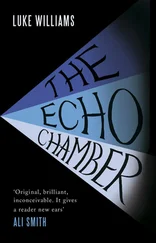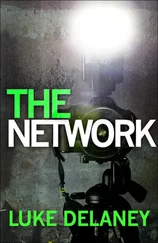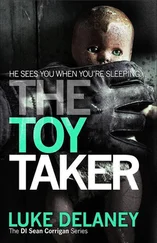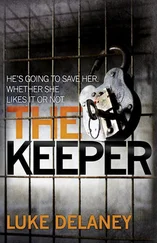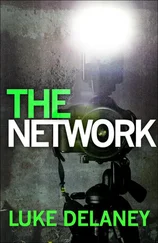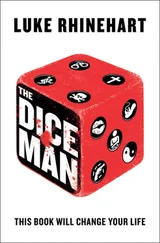Luke Rheinhart - The Diceman
Здесь есть возможность читать онлайн «Luke Rheinhart - The Diceman» весь текст электронной книги совершенно бесплатно (целиком полную версию без сокращений). В некоторых случаях можно слушать аудио, скачать через торрент в формате fb2 и присутствует краткое содержание. Жанр: Современная проза, на английском языке. Описание произведения, (предисловие) а так же отзывы посетителей доступны на портале библиотеки ЛибКат.
- Название:The Diceman
- Автор:
- Жанр:
- Год:неизвестен
- ISBN:нет данных
- Рейтинг книги:3 / 5. Голосов: 1
-
Избранное:Добавить в избранное
- Отзывы:
-
Ваша оценка:
- 60
- 1
- 2
- 3
- 4
- 5
The Diceman: краткое содержание, описание и аннотация
Предлагаем к чтению аннотацию, описание, краткое содержание или предисловие (зависит от того, что написал сам автор книги «The Diceman»). Если вы не нашли необходимую информацию о книге — напишите в комментариях, мы постараемся отыскать её.
The Diceman — читать онлайн бесплатно полную книгу (весь текст) целиком
Ниже представлен текст книги, разбитый по страницам. Система сохранения места последней прочитанной страницы, позволяет с удобством читать онлайн бесплатно книгу «The Diceman», без необходимости каждый раз заново искать на чём Вы остановились. Поставьте закладку, и сможете в любой момент перейти на страницу, на которой закончили чтение.
Интервал:
Закладка:
At week's end, Palo Alto Police staged their second raid of the year on the Los Altos Hills Center, but netted nothing but a box of pornographic films, possibly filmed at the Centers. Manager Lawrence Taylor maintains that the only reason he regrets the raids is the favorable publicity it gives the Center among the young. 'We're having to turn away a hundred applicants a week. We don't want to seem exclusive, but we just don't have the facilities.'
A team of Time reporters discovered that friends and relatives of CETRE survivors are uniformly upset with the changes which have occurred in their loved ones. `Irresponsible, erratic, destructive' was the way nineteen-year old Jacob Bleiss of New Haven described his father after Mr. Bleiss returned from the Catskill (ICY.) CETRE.
`He can't hold a job, he's not home a lot of the time, he hits my mother and he seems stoned half the time only on nothing. He's always laughing like an idiot.'
Irrational laughter, a classic symptom of hysteria, is one of the most dramatic manifestations of what psychiatrists are beginning to label the 'CETRE sickness.'
Dr. Jerome Rochman of Chicago University's Hope Medical Center stated in Peoria last week: `If I had been asked by someone to create an institution which would totally destroy the human personality with all its integrated grandeur #161;the striving, the moral questioning, the compassion for others and the sense of specific individual identity - I might have created CETREs. The results are predictable: apathy, unreliability, indecisiveness, manic depressions, inability to relate, social destructiveness, hysteria.'
Dr Paul Bulber of Oxford, Mississippi, goes even further: 'The theory and practice of dice therapy both in and out of CETREs is a greater threat to our civilization than Communism. They subvert everything which American society, indeed, any society, stands for. They should be wiped from the face of the earth: Santa Clara District Court Judge Hobart Button perhaps summed up best the feelings of many people when he said to students Richards and O'Reilly: `The illusions that lead people to throw away their lives are appalling. The rush to drugs and to CETREs is like the rush of lemmings to the sea.'
Or the rush of rats into sewers.
Time was, within the necessary limits set by fiction, totally accurate. Over the course of two years five of their reporters went through a month-long stay at a CETRE. The bitterness of the article may partly reflect that three of their hirelings did not report back to Time.
Ever since money contributed by Wipple, myself and others to the DICELIFE Foundation permitted us to build our first Dice Center, our CETREs have changed people. They destroy people for normal functioning within this insane society. It all started when I realized that dice therapy worked slowly with most students because they always knew that other people expected them to be consistent and `normal'; a lifetime of conditioning to respond to such expectation wasn't being broken by the partial and temporary free environments of dicegroups. Only in a total environment in which nothing is expected does a student feel the freedom necessary to express his host of minority selves clawing for life. And then, only by making the gradual change from the totally random environment of a-CETRE through our `Halfway Houses' to the patterned society outside can we make it possible for the student to carry over his dicelife of freedom into the patterned world.
The story of the development of the various centers and of our theory behind them will be told in detail in Joseph Fineman's forthcoming book The History and Theory of Dice Centers (Random Press, 1972). The best single rendering of how the centers work to change a man determined not to change can be found in `The Case of the Square Cubed,' an autobiographical account by Dr. Jacob Ecstein. Jake's personal story was first printed in The See of Whim (April, 1971, vol. II, no. 4, pp. 17-33) but it is to be reprinted in his forthcoming book Blow the Man Down (Random Press, 1972). But for a general background, the Die has suggested I quote from Fineman's forthcoming book.
A student can enter only for a minimum of thirty days and must first pass an oral examination showing he understands the basic rules of the dicelife and the structures and procedures of the CETRE. He is told to come to the Center with absolutely no identifying personal possessions; he may use any names he wishes while at the Center but all names will be considered false ….
CETREs vary in their details. In the Creativity Rooms, the Die often commands a student to invent new and better features for our Random Environments and many procedures and facilities have been modified in this way, some changes remaining peculiar to a single Center and others being adopted by all. All CETREs are similar, however, to the original Corpus Die complex inn Southern California.
Although each of the individual rooms in a Center has a student-invented name (e.g. the Pit, the God room, the Party room, the Room room, etc.) the names vary from Center to Center. There are workrooms (laundries, offices, espy rooms, clinics, a jail, kitchens), playrooms (emotion rooms, marriage rooms, love rooms, God rooms, creativity rooms), and life rooms (restaurants, bars, living rooms, bedrooms, movie house, etc) He must spend from two to five hours a day working at various dice-dictated jobs: he waits on table, sweeps out rooms, makes beds, serves cocktails, acts as a policeman, therapist, clothing clerk, mask maker, prostitute, admissions officer, jailer, etc. In all of these the student is diceliving and playing roles.
At first we kept most of the key positions filled with permanent, trained staff members: at least half the `therapists' were real therapists; half the policemen were real staff members; our `admissions officers' were real and so on.
However, over our brief three-year history, there has been a gradual withering away of the staff. With carefully prepared structures and instructions we find that the third and fourth week students can handle most of the key roles as well as the permanent staff used to. The staff members vary their roles from week to week like the temporary students, who thus can't be certain at any time who is a staff member and who isn't. The staff members know, but they can't prove it, since anyone can claim to be a staff member. Whatever usefulness there is in having permanent, trained personnel in a CETRE rests in their having ability, not in their having `authority.'
[In our Vermont Center we experimented by withdrawing our permanent. dicepeople one by one until the center was functioning without a single trained staff member - only transient students. After two months we infiltrate permanent staff members back in, and they reported that everything was proceeding as chaotically as ever; only a small amount of rigidity and structure had crept in during the two months in which the `state' had totally withered away.]
In our structured anarchy [writes Fineman] the authority rests with the therapists (called Referees in most Centers), and with the policemen, whoever they may be. There are rules (no weapons, no violence, no roles or actions inappropriate to the particular game room in which you are acting, etc.) and if the rules are broken, a `policeman' will hake you to a `referee' to determine whether you must be sent to `jail.'
About half our `criminals' are individuals who keep insisting that they are only one real person and want to go home. Since such role playing is inappropriate in many of the workrooms and playrooms, they must be sentenced to jail and to the hard labor of dice therapy - until they are better able to function in multiplicity. The other half of our criminals are students who must play out their roles of lawbreakers even if the laws they break are the strange ones of our Dice Centers.
Читать дальшеИнтервал:
Закладка:
Похожие книги на «The Diceman»
Представляем Вашему вниманию похожие книги на «The Diceman» списком для выбора. Мы отобрали схожую по названию и смыслу литературу в надежде предоставить читателям больше вариантов отыскать новые, интересные, ещё непрочитанные произведения.
Обсуждение, отзывы о книге «The Diceman» и просто собственные мнения читателей. Оставьте ваши комментарии, напишите, что Вы думаете о произведении, его смысле или главных героях. Укажите что конкретно понравилось, а что нет, и почему Вы так считаете.

